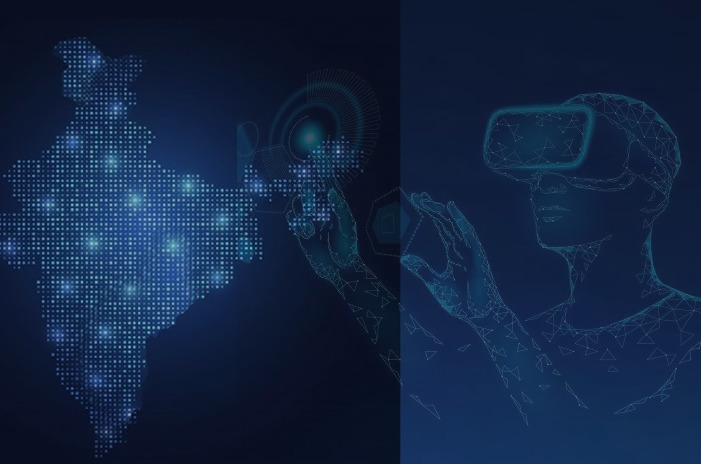
Artificial Intelligence, Actual Challenges
People in power expectedly seek comfort in the fact that India has more than achieved the World Health Organisation (WHO) recommended doctor to population ratio of 1:1,000, described as the ‘golden finishing line’ in 2018. In fact, the ratio is approaching 1.5. This is, however, taking into account the registered medical practitioners of both modern medicine (MBBS and higher degrees) and traditional medicine (AYUSH, the acronym for Ayurveda, yoga & naturopathy, unani, siddha and homeopathy). The yearly intake of nearly 70,000 MBBS students at institutions regulated by the Medical Council of India may look impressive on paper, but this is to be seen in the context of pathetic state of health services beyond cities in vast expanses of semi-urban and rural areas.
People living in Bharat are the sufferers for the low allocation for healthcare in the Union and state budgets year after year ignoring the sane advice of the world’s leading development economists. Indian leaders nurse the ambition that the country be counted among super powers. Nothing wrong in that. But how can that happen when the country is among the lowest budget allocator of GDP in healthcare in the world. Not to cite instances of developed countries, India is distressingly spending less in healthcare, as a percentage of GDP, than Brazil, Bangladesh and Pakistan.
Outside tier 1 to 3 cities in India, people may get good, if they are lucky, to indifferent services of general medical practitioners and rarely of specialists. But relief is likely to come to the vast majority living wherever they maybe, depending on how soon the healthcare system will be enabled by artificial intelligence (AI) to be of universal service. The challenge then is to go on feeding the computer with enormous amount of data culled from international and domestic sources relating to diseases, their symptoms, identification and diagnosis, the tests to be done and treatment to be followed thereafter.
The problem that will still be there is the lack of equipment and trained doctors and nurses in rural hospitals and health centres. When it comes to India, the major problem, as has been identified by Anandalal Roy of National Institute of Health, Washington and Kunal Sen, global chief information officer of Encyclopaedia Britannica is the lack of reliable health related data. They say most of the data are illegibly handwritten, almost impossible to decipher and therefore, it is difficult to create an appropriate database.
According to Roy and Sen, in the absence of an ideal training data in database, the computer will not be able to diagnose diseases and recommend ways of treating them. The basic premise is if wrong or incomplete data is fed into the computer, then it will generate wrong results. They, therefore, recommend that steps should be taken to centrally digitise all health related records. Once this enormous time-consuming work is done, it will be possible to access any health record from anywhere by using the computer. In course of time, once sufficient records are collated and fed into the computer they are to become part of database. Roy and Sen say though India is making progress slowly in this direction, it mercifully has remained in course.
Health is, however, one of the many areas where AI will work wonders in terms of service improvement, booster of efficiency sparing people from doing routine work over and over again and operational cost reduction. No wonder then a growing number of companies engaged in manufacturing from metals to automobiles, FMCG products and financial groups are doubling down on introduction of digitisation and AI in their systems in the wake of the globally disruptive Covid-19 pandemic.
ALSO READ: How Artificial Intelligence Fuels Hatred
From logistical planning to supporting sales without being physically in touch with buyers to scripting overall business strategy, AI is proving to be of major aid. Who did coin the word ‘artificial intelligence’ and when? Stanford University professor John McCarthy was the first to use the word in 1955 when he proposed a ten-man summer research on the subject. In proposing the research, McCarthy wrote: “The study is to proceed on the basis of the conjecture that every aspect of learning or any other feature of intelligence can in principle be so precisely described that a machine can be made to simulate it.” Moreover, his invention of computer programming language LISP remains the universal language of choice for AI.
As AI continues to make inexorable march to perform humongous amount of work, there are concerns not confined to India that machines progressively taking over many tasks routinely performed by human beings will lead to job losses. But H. James Wilson and Paul R Daugherty say in an article published in Harvard Business Review that “while AI will radically alter how work gets done and who does it, the technology’s larger impact will be in complementing and augmenting human capabilities, not replacing them.”
In their research involving 1,500 companies, the principal finding is that companies achieve maximum performance improvements when humans and machines work in harmony. “Through such collaborative intelligence, humans and AI actively enhance each other’s complementary strengths: The leadership, teamwork, creativity and social skill of the former and the speed, scalability and quantitative capabilities of the latter.”
This and many other similar research findings will help in dispelling misgivings about growing AI application. What must also be taken into consideration are the emerging links between AI and creativity. The survey of a large number of global businesses and leaders in information technology (IT) by MIT Technology Review Insights found that nearly half of them agreed that because of AI “we could dedicate more time to thinking creatively about the business challenges we and our clients face.” AI is exactly freeing people from tedious routine work to be able to be engaged in creative and innovative pursuits.
India has a unique advantage in rapidly employing AI in sectors from health to industry to finance to farming. Not only are the world’s maximum number of students are majoring in the subject in Indian colleges, but this country also hosts the globe’s largest number of companies engaged in development and application of AI, ahead of the US and China. Even while India has this distinctive edge in AI education, Roy and Sen, both residents of the US, regret that beyond graduation, the students migrate to foreign countries to pursue further study, including PhD on the subject. As is expectedly the case, once they leave India, they settle down abroad where employment opportunities in the field are growing fast. Roy and Sen recommend the ways to staunch the brain drain of this intelligent kind will be to create condition for appropriate investment in AI higher education, including facilitating research work and assured jobs after completion of education.



